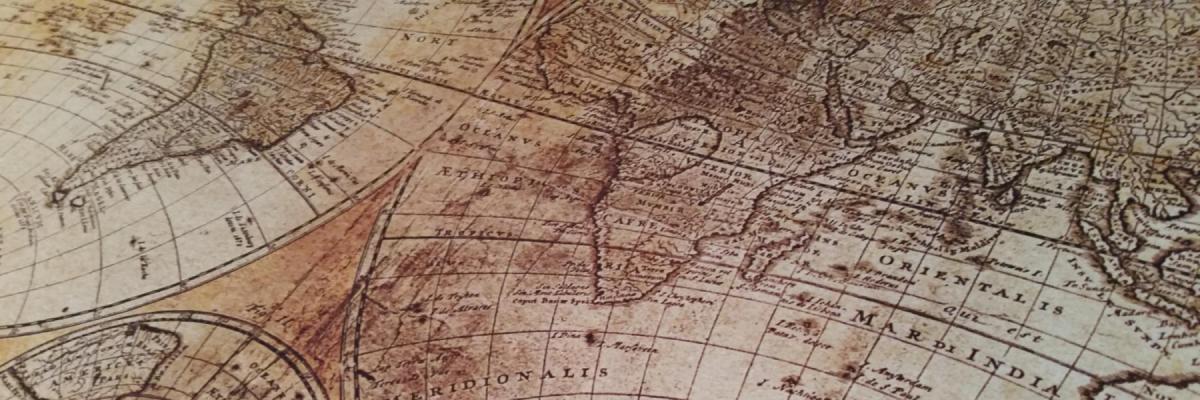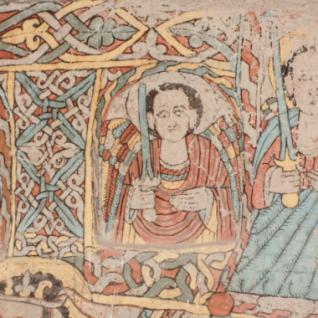History Major (HBA)
Admissions Category: Social Sciences & Humanities

Program Overview
History at UTSC provides a dynamic introduction to the global transformations that have taken place over the past two millennia, while also focusing on the experiences and contributions of ordinary men and women to these transformations. The curriculum covers a broad range of topics, including religion and everyday life, colonialism, the relations between women and men, the history of work, the environment, urbanization, immigration, race and ethnicity, and material culture. Students develop key skills such as critical reading, research, and writing which are necessary for the study of the past and for a wide range of professional activities beyond the university. The Major Program in History is a program option for the Honours Bachelor of Arts/ Master of Teaching Combined Degree Program (please see the UTSC Calendar for more details).
Complementary Programs:
Classical Studies, Food Studies, Global Asia Studies, Women’s and Gender Studies, African Studies, Political Science, Journalism
Check out future career opportunities and skills acquired from completing this program:
Competencies & Skills
- Formulate research questions and design research projects to answer them
- Gather historical evidence through archival, digital, oral history, and other methods
- Learn to critically evaluate sources and competing arguments
- Marshall evidence to build arguments
- Present findings clearly and creatively in writing, public speaking, and digital formats
- Compare and interpret societies, polities, and their transnational connections across space and time
- Recognize change, continuity, and other patterns in historical events
- Understand the present through the past
Careers for Graduates
- Teacher
- Lawyer
- Journalist
- Editor or Copywriter in Publishing
- Museum Professional
- Research or Policy Analyst in Government
- Researcher/Analyst/Program Coordinator in Non-Profit or Non-Governmental Organizations
Further Education
- Law
- History
- Teacher Education
- Journalism
- International Relations
- Museum Studies
- Information/Library Science
- Public Service & Administration
- International Development
Program Pathway
Year 1 | Year 2 | Year 3 | Year 4Choose Your Courses Wisely
- 1.0 credit from the following: HISA04H3, HISA05H3, [HISA06H3 or GASA01H3], [HISA07H3 or CLAA04H3],[HISA08H3 or AFSA01H3], HISA09H3.
- Explore different kinds of courses; this will also help with fulfilling breadth requirements and electives.
- Use Degree Explorer and the UTSC Calendar to plan your courses and program.
Develop Your Academic & Research Skills
- Schedule an appointment with your Program Librarian for in-depth research assistance with your assignments.
- Get writing support at the CTL Writing Centre.
Apply Theory to Practice
- Attend the UTSC Faculty Mix & Mingle Fair to connect with professors and learn more about their specialties.
- Start building your Co-Curricular Record (CCR) and search for Experiential Learning opportunities on the Career & Co-Curricular Learning Network (CLNx).
Become an Engaged Citizen (Locally & Globally)
- Get involved with the Historical and Cultural Studies Student Association (HCSSA); also explore other relevant student clubs and activities on campus.
- Volunteer in DSL’s Alternative Reading Week program to gain experience and knowledge about social change and community development.
Plan for Your Future Career
- Volunteer with organizations to explore your interests; check listings on CLNx (>Jobs & Recruitment).
- Attend the UTSC Get Experience Fair in September and register with SCSU’s Volunteer Network Program to explore opportunities.
Year 2
Choose Your Courses Wisely
- 0.5 credit as follows: HISB03H3.
- 2.5 credits in History at any level.
- Students should review the requirements listed in Years 3 and 4 prior to Year 2 course selection.
- Use Degree Explorer and meet with your Program Advisor or Supervisor to ensure you are on track with your degree.
Develop Your Academic & Research Skills
- Further develop your general academic skills by attending workshops offered by the Academic Advising & Career Centre (AA&CC) and Centre for Teaching & Learning (CTL).
Apply Theory to Practice
- Get involved in relevant opportunities on and/or off campus; apply to Work Study, or other part-time and summer jobs on CLNx (>Jobs & Recruitment).
Become an Engaged Citizen (Locally & Globally)
- Check CLNx (>Jobs & Recruitment) to search for Work Study or volunteer positions on campus to gain experience and to get involved.
Plan for Your Future Career
- Connect with professors and advisors early so you are on track with your post-graduation plans.
- Explore careers through the AA&CC’s Job Shadowing and In The Field programs.
Year 3
Choose Your Courses Wisely
- 3.0 credits must be at the C- or D-level.
- Of the 7.0 credits needed to complete the program, 1.5 credits must deal with the period prior to 1800.
- Use Degree Explorer to ensure you are on track with your degree.
Develop Your Academic & Research Skills
- Consider competing for the UTSC Library Undergraduate Research Prize or Poster Forum.
- Have a big project in mind? Think about whether HISD01H3 and HISD02H3, Independent Studies: Senior Research Project, might be for you.
Apply Theory to Practice
- Build on your skills and knowledge through relevant events offered through your department, student groups, DSL and the AA&CC.
- Seek out research and volunteer opportunities with facul
Become an Engaged Citizen (Locally & Globally)
- Run for an elected position in the Historical and Cultural Studies Student Association (HCSSA).
- Look into volunteering or working overseas to expand your network through International Student Centre’s (ISC) Global Learning programs.
Plan for Your Future Career
- Plan a career path with a staff member at the AA&CC.
- Check CLNx for networking events and employer information sessions to attend.
- Attend the Graduate & Professional School Fair in September.
- Discuss your grad school plans with your professors.
- Contact professors about writing reference letters.
Year 4
Choose Your Courses Wisely
- Of the 7.0 credits needed to complete the program, 1.0 credit must deal with Canadian history and at least 0.5 credit is needed in two of the areas of history listed in the History section of the UTSC Calendar.
- Use Degree Explorer to ensure you are on track to graduate.
- Register your “Intent to Graduate” on ACORN by the deadline.
Develop Your Academic & Research Skills
- Apply for an Academic Travel Fund through Department of Student Life (DSL) to research, present at a conference, or engage with the international academic community.
Apply Theory to Practice
- Attend the Summer & Full-time Job Fair in January to meet with potential employers looking to hire students for summer and full-time positions relevant to your field.
Become an Engaged Citizen (Locally & Globally)
- Participate in the AA&CC’s Partners in Leadership program to learn and network with an alumni mentor about transitioning to work or further education.
Plan for Your Future Career
- Attend the AA&CC’s Get Hired job search conference in April/May.
- Attend a Jobs for Grads orientation for a job search “crash course” and for access to full-time job listings.
- Discuss your grad school plans with your professors and AA&CC staff and get your Personal Statement reviewed in the AA&CC.
